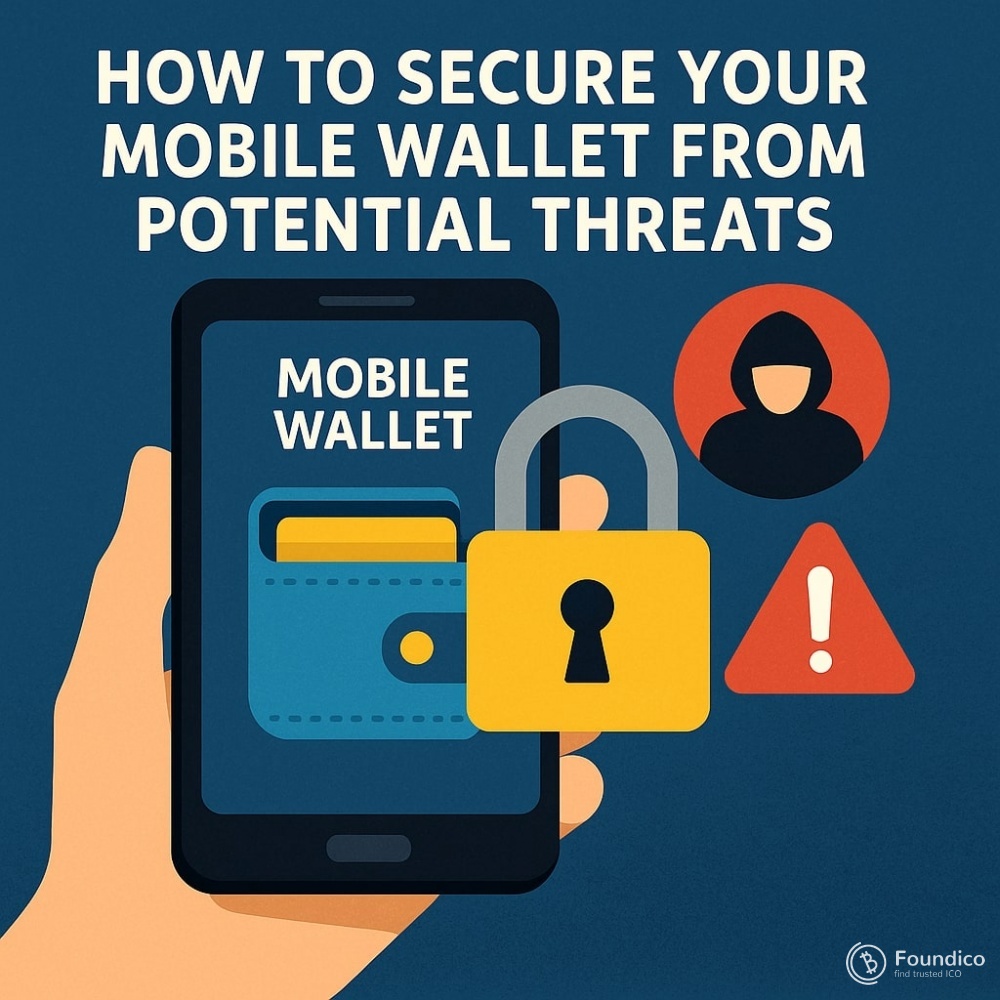How to Secure Your Mobile Wallet from Potential Threats

By Dr. Pooyan Ghamari, Swiss Economist and Visionary
As cryptocurrencies gain mainstream traction, mobile wallets have become the preferred tool for many users to store, send, and receive digital assets conveniently. Their portability and ease of access empower users but also expose them to a range of potential security threats. Mobile wallets, if not properly secured, can become targets for hackers, malware, and various forms of cyberattacks, leading to irreversible losses.
This article offers a comprehensive guide on how to protect your mobile wallet against such threats, enabling you to manage your crypto assets with confidence and peace of mind.
Understanding the Threat Landscape for Mobile Wallets
Mobile wallets are essentially apps that store your private keys locally or in encrypted form. While this design offers flexibility, it also creates vulnerabilities:
-
Malware and Spyware can infect your device, searching for wallet data or passwords.
-
Phishing Attacks attempt to trick you into revealing your private keys or recovery phrases.
-
Loss or Theft of Device can result in unauthorized access to your wallet if not protected.
-
Man-in-the-Middle Attacks can intercept transactions or login details if networks are insecure.
The decentralized nature of cryptocurrency means there is no bank or intermediary to reverse fraudulent transactions once your wallet is compromised. Therefore, proactive security is essential.
Best Practices to Secure Your Mobile Wallet
1. Choose a Trusted Mobile Wallet
Opt for well-established wallets with strong security records, open-source code, and positive user reviews. Research whether the wallet supports advanced security features such as biometric authentication, multi-signature, or hardware wallet integration.
2. Protect Your Private Keys and Seed Phrases
Your private keys and seed phrases are the master keys to your wallet. Never share them with anyone or store them digitally in plain text. Instead:
-
Write them down on paper and keep them in a secure, offline location.
-
Consider storing copies in a safety deposit box or encrypted USB device.
3. Use Strong Authentication Methods
Enable biometric authentication (fingerprint or face recognition) if supported by your wallet app. Use complex, unique passwords or passphrases, and change them periodically.
4. Keep Your Software Updated
Regularly update your mobile wallet app and your smartphone’s operating system. Updates patch known security vulnerabilities that attackers may exploit.
5. Be Wary of Public Wi-Fi
Avoid conducting crypto transactions over unsecured public Wi-Fi networks, which can be exploited by hackers to intercept your data. Use a Virtual Private Network (VPN) if you must connect on public networks.
6. Enable Two-Factor Authentication (2FA)
For wallets or exchanges that support it, activate 2FA. This adds an extra verification step beyond your password, making unauthorized access much harder.
7. Regularly Backup Your Wallet
Keep encrypted backups of your wallet data stored securely offline. This ensures you can recover your funds if your device is lost or damaged.
Additional Tips for Enhanced Security
-
Beware of Phishing Attempts: Only download wallet apps from official app stores. Avoid clicking links or opening attachments from unknown sources.
-
Limit Permissions: Check and restrict app permissions for your wallet to only what is necessary.
-
Monitor Your Wallet Activity: Regularly review transactions and alerts for any unauthorized activity.
-
Consider Hardware Wallets: For large holdings, consider using a hardware wallet—a physical device that stores private keys offline—paired with your mobile wallet for added security.
What to Do If Your Mobile Wallet Is Compromised
If you suspect your wallet or device is compromised:
-
Immediately transfer your funds to a new, secure wallet with a fresh set of keys.
-
Revoke any linked API keys or third-party app permissions.
-
Run a security scan on your device and remove suspicious apps.
-
Change passwords and alert your contacts if needed.
-
Report the incident to relevant authorities or platforms.
Mobile wallets have democratized access to cryptocurrency, but this convenience comes with security responsibilities. By adopting best practices—from safeguarding private keys to leveraging authentication tools—you can mitigate risks and protect your digital wealth.
In the dynamic world of crypto, staying informed and vigilant is your best defense. Secure your mobile wallet today to enjoy the benefits of digital assets safely tomorrow.
About the Author:
Dr. Pooyan Ghamari is a Swiss economist and visionary focused on blockchain technology, financial security, and sustainable innovation. His expertise bridges economic insight with emerging digital trends, advocating for responsible and secure crypto adoption.

 BitcoinHyper - Bitcoin Hyper finally unlocks fast and cheap Bitcoin transactions by delivering the first ever Bitcoin Layer 2 blockchain.
BitcoinHyper - Bitcoin Hyper finally unlocks fast and cheap Bitcoin transactions by delivering the first ever Bitcoin Layer 2 blockchain.